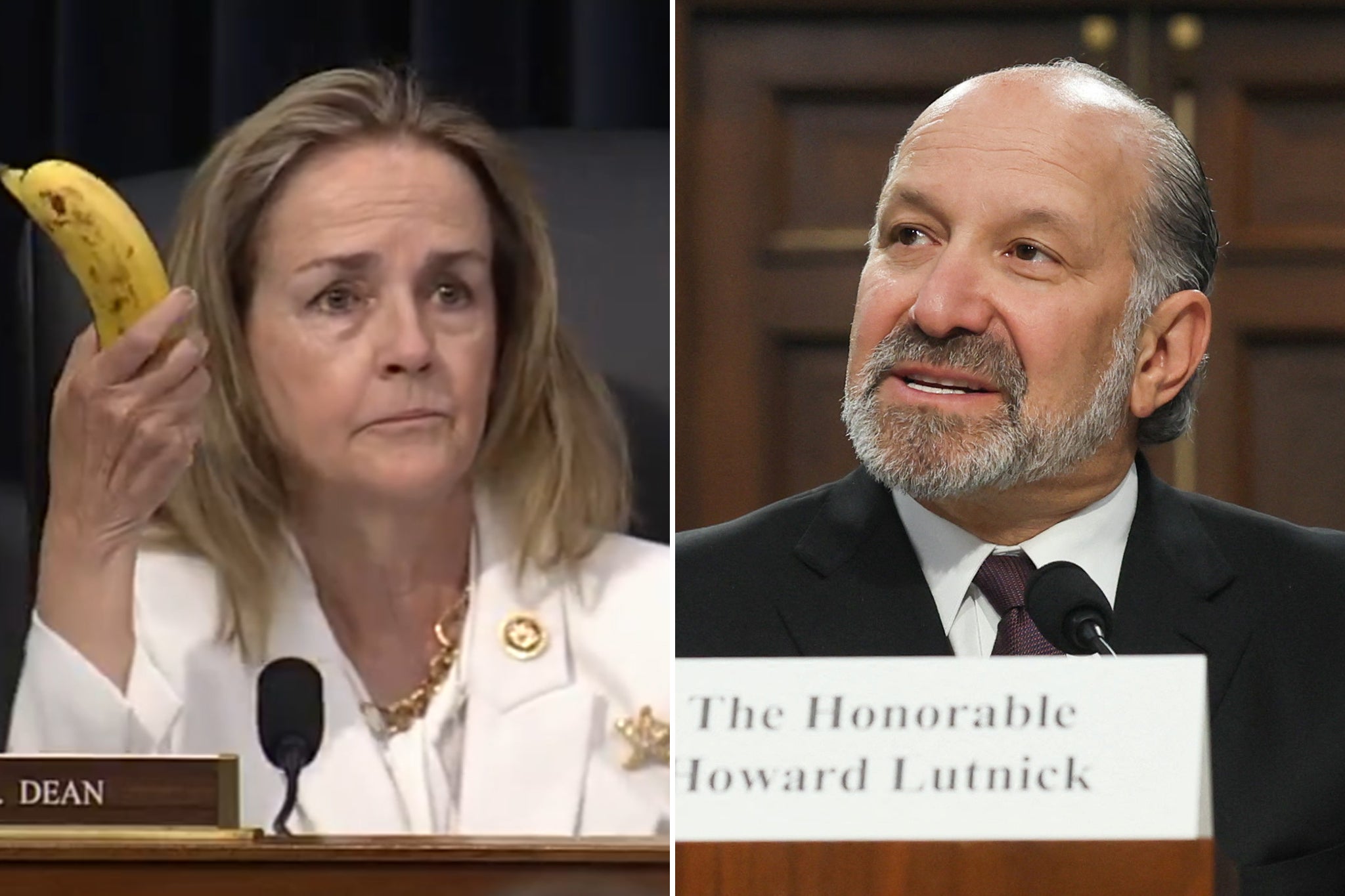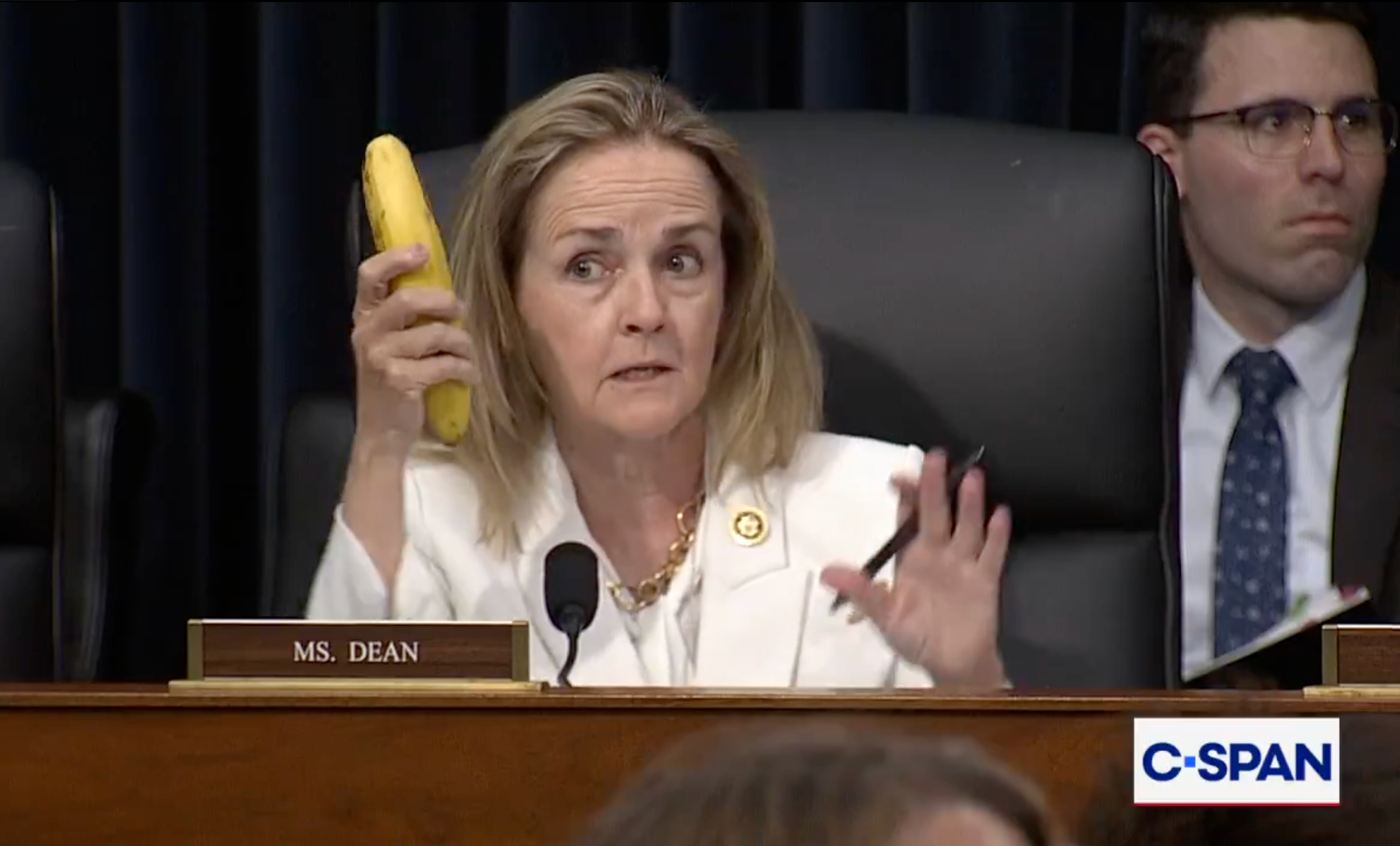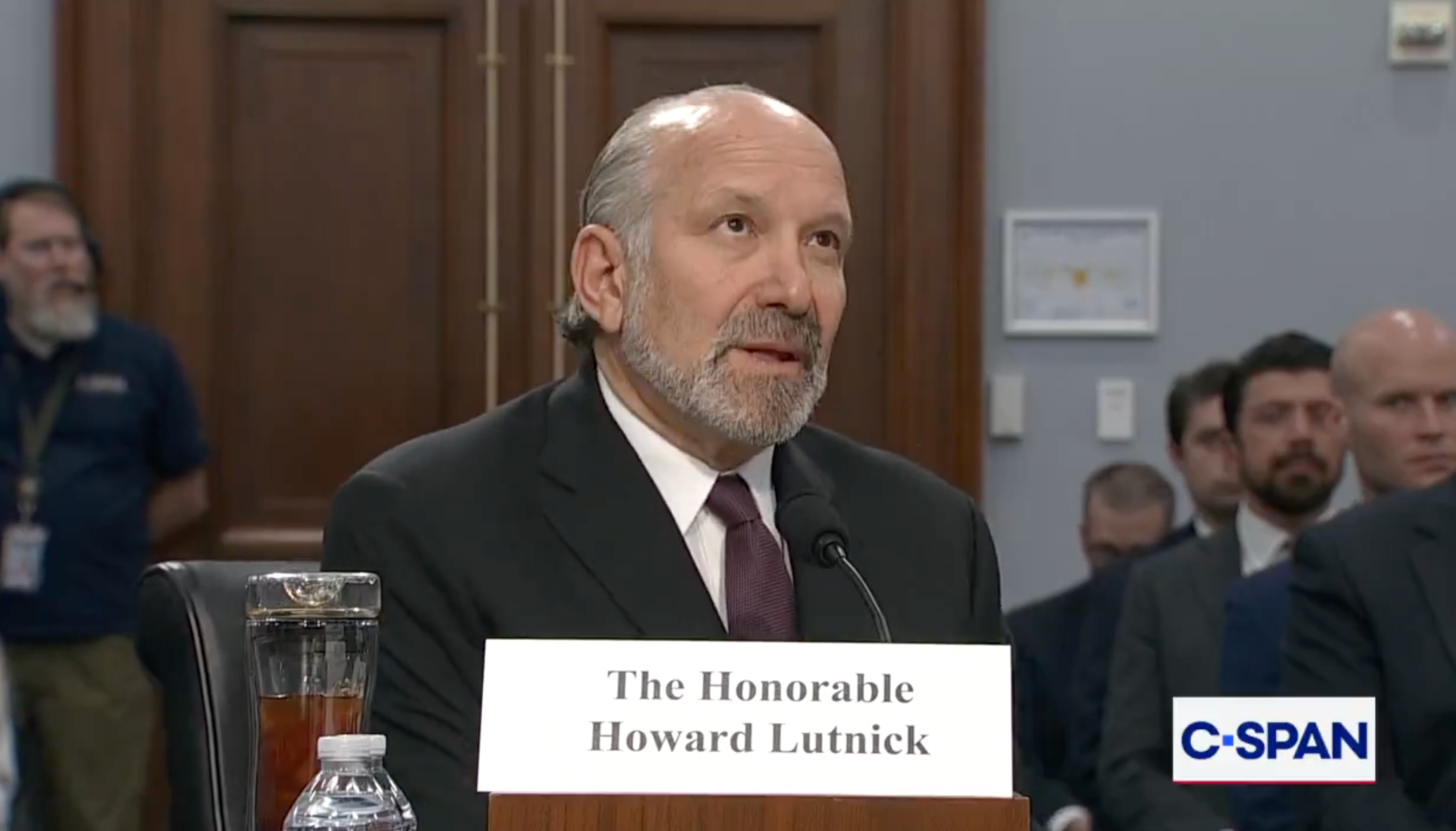ARTICLE AD BOX
Commerce Secretary Howard Lutnick was ridiculed in the House of Representatives over his proposed solution if Donald Trump’s tariffs hit banana imports.
Lutnick, one of the loudest cheerleaders for Trump’s aggressive trade strategy, was testifying before the House Appropriations Committee when he found himself up against Pennsylvania Democratic Rep. Madeleine Dean.
The congresswoman put it to Lutnick that the Trump administration lacked a fundamental understanding of how a trade deficit works, pointing out that the last time the United States had a trade surplus was during the Great Depression of the 1930s, a return to which is “a direction none of us wants to go,” she said.

Dean rebuked the secretary over the chaotic implementation of Trump’s tariff policy after the president was forced to row back his imposition of steep levies on 100 countries on “Liberation Day” (April 2) when they spooked the stock markets, forcing him to swiftly introduce a 90-day pause to allow for dealmaking.
“We are in the midst of negotiations with dozens of countries,” Lutnick raced to reassure her. “We could sign deals but they’re only going to get better as we negotiate them.”
Dean then pivoted to her true subject, the cost of living, saying that residents of her suburban Philadelphia district were facing $2,000 a year increases to their grocery bills as a result of inflation, noting that Walmart, for one, had already raised the price of bananas by eight percent.
“Mr Trump promised to bring down the cost of goods, day one. And what he has done through his trade deficit fixation and his tariff chaos has nakedly increased the cost of goods,” she said.
Brandishing a banana, Dean asked the secretary: “What’s the tariff on bananas? Americans, by the way, love bananas. We buy billions of them a year. I love bananas. What’s the tariff on bananas?”

“The tariff on bananas would be representative of the countries that produce them,” Lutnick answered, estimating the rate at 10 percent when pushed.
“But the cost is on the American consumer now and on the businesses with the confusion now,” she hit back.
“Mr Secretary, I believe you know better. I believe you recognize that a trade deficit is not something to fear. I believe you know that predictability, stability is essential for businesses. I wish you would show that truth to this administration.”
When Dean yielded her time, Lutnick asked for permission to respond to her and said: “There’s no uncertainty if you build in America and you produce your product in America. There will be no tariff.”
“We can’t produce bananas in America,” she responded, incredulously.

“The concept of building in America and paying no tariffs is very, very clear,” said Lutnick.
“We cannot build bananas in America,” Dean repeated.
“Fighting for imports is not the same,” the secretary tried again.
“We cannot build bananas in America,” the representative repeated.
While it is true that the United States cannot “build” its own bananas and most are imported from Central American nations like Guatemala, Ecuador and Costa Rica, southern states like California, Florida, Arizona, Louisiana and Texas have the necessary climate to grow them but currently only do so in small quantities.
Hawaii also grows bananas, as do the American territories of Puerto Rico, Guam, American Samoa, the U.S. Virgin Islands and the Northern Mariana Islands but, again, not currently on a scale sufficient to meet domestic demand.









 English (US) ·
English (US) ·